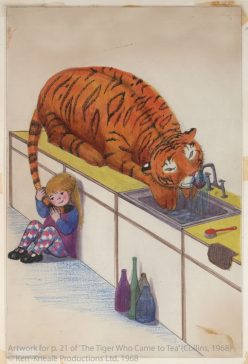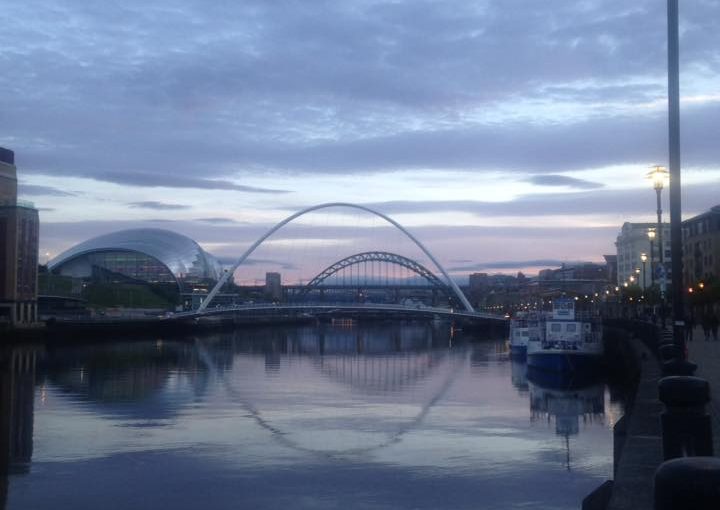Dr Eve Tandoi
At the end of the academic year, the University of Gloucestershire – at which I work – kindly agreed to fund a short writing retreat. At first I thought of taking myself off to an isolated cottage, but then I quickly realised that what I needed after a year working in Initial Teacher Education was to immerse myself in a stimulating and inspiring environment where I was not ‘the lecturer’.
As part of an earlier project I had started exploring the field of children’s theatre. Therefore, I was aware of Dr Helen Freshwater’s work on theatrical representations of children and childhood. I was also aware that Seven Stories housed the playwright David Wood’s extensive archive of original plays and adaptations. The coexistence of archive and individual in a place – Newcastle – that just happened to house a thriving community of children’s literature scholars was simply too good to miss. Dr Lucy Pearson and Professor Kim Reynolds have been incredibly kind – putting me in contact with the archivist Kris McKie at Seven Stories and Dr Helen Freshwater. They also organised for me to attend the talk that Brian Alderson gave at the Philip Robinson Library and to give a talk myself at CLUGG.
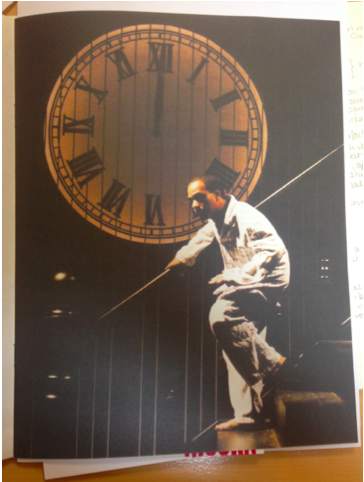 The staff at Seven Stories were wonderful and Kris McKie was brilliant at introducing me to the David Wood collection. On learning that I planned to look at material related to six productions, he subtly hinted that I might not quite get through all thirteen archive boxes in the time available. On his suggestion, I started with the boxes related to David Wood’s adaptation of Philippa Pearce’s Tom’s Midnight Garden (1958), which kept me busily occupied. I have written more extensively about the work I did there for the Seven Stories Collection Blog (coming soon!). The material related to this adaptation and to many others is incredibly rich and it has provided me with a range of questions and perspectives to consider. Just as a tantalising nugget – I am sure that you are aware of the controversy over casting choices for Harry Potter and the Cursed Child but were you aware of the colour-blind casting for the premier of Tom’s Midnight Garden (Unicorn, 2000)?
The staff at Seven Stories were wonderful and Kris McKie was brilliant at introducing me to the David Wood collection. On learning that I planned to look at material related to six productions, he subtly hinted that I might not quite get through all thirteen archive boxes in the time available. On his suggestion, I started with the boxes related to David Wood’s adaptation of Philippa Pearce’s Tom’s Midnight Garden (1958), which kept me busily occupied. I have written more extensively about the work I did there for the Seven Stories Collection Blog (coming soon!). The material related to this adaptation and to many others is incredibly rich and it has provided me with a range of questions and perspectives to consider. Just as a tantalising nugget – I am sure that you are aware of the controversy over casting choices for Harry Potter and the Cursed Child but were you aware of the colour-blind casting for the premier of Tom’s Midnight Garden (Unicorn, 2000)?
As well as working within the archives I had a number of opportunities to catch up with friends over the course of the week. When I first arrived at Cambridge to take an MPhil in Children’s Literature, someone told me that the people I met and studied with would become friends for life and I feel incredibly fortunate to still be in touch with so many of them. As Roberta Seelinger Trites once said, “We do not eat our children” and the children’s literature community is an incredibly friendly and stimulating one of which to be a part.
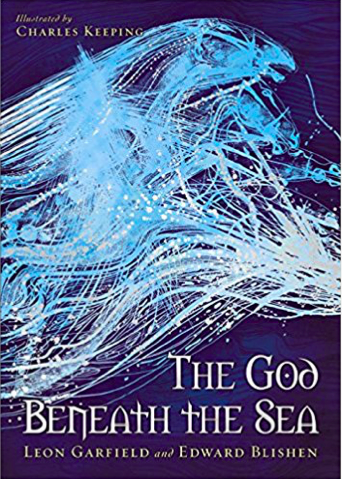 As an author, reviewer, collector and translator of children’s literature, Brian Alderson is perhaps one of the founding figures of the children’s literature community. Therefore, it was lovely to be able to sit back and listen to him speak about a handful of children’s authors and illustrators that I was either unaware of or who I want to know better. The talk was given in honour of the exhibition that he curated for the Philip Robinson Library and that is open over the summer. I particularly enjoyed being reminded of the incredible work that Brian Wildsmith and Charles Keeping have done because
As an author, reviewer, collector and translator of children’s literature, Brian Alderson is perhaps one of the founding figures of the children’s literature community. Therefore, it was lovely to be able to sit back and listen to him speak about a handful of children’s authors and illustrators that I was either unaware of or who I want to know better. The talk was given in honour of the exhibition that he curated for the Philip Robinson Library and that is open over the summer. I particularly enjoyed being reminded of the incredible work that Brian Wildsmith and Charles Keeping have done because 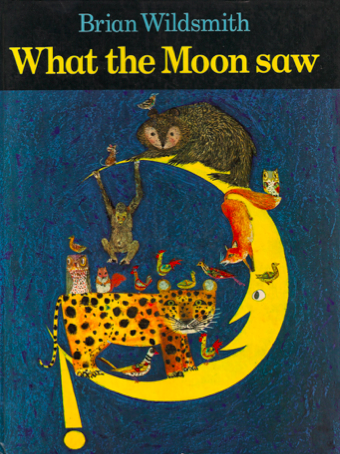 I vividly remember pouring over their illustrations as a child. Needless to say, several of the picturebooks that Brain Alderson shared with us are currently winging their way towards me through the post!
I vividly remember pouring over their illustrations as a child. Needless to say, several of the picturebooks that Brain Alderson shared with us are currently winging their way towards me through the post!
My own talk that I gave to the assembled members of CLUGG was tightly focused on a reading event in which a Year 7/8 class read and responded to David Almond and Dave McKean’s The Savage (2008). It was a real luxury to have an hour to present and then discuss the children’s responses to the book and I felt that it provided me with a unique opportunity to ‘dig deeper’ and bring together ideas that had – until then – grown independently. I would like to take this opportunity to thank everyone who came to the talk – the questions you asked have given me so much to think about and I am very much enjoying revisiting my work in the light of them.
I had a wonderful time in Newcastle and it has been such a pleasure to reconnect with children’s literature friends and make new ones. The resources available at the University and at Seven Stories for researchers interested in children’s literature are outstanding and I have come away buzzing, so thank you – yet again – to all those who made my stay to enjoyable.
